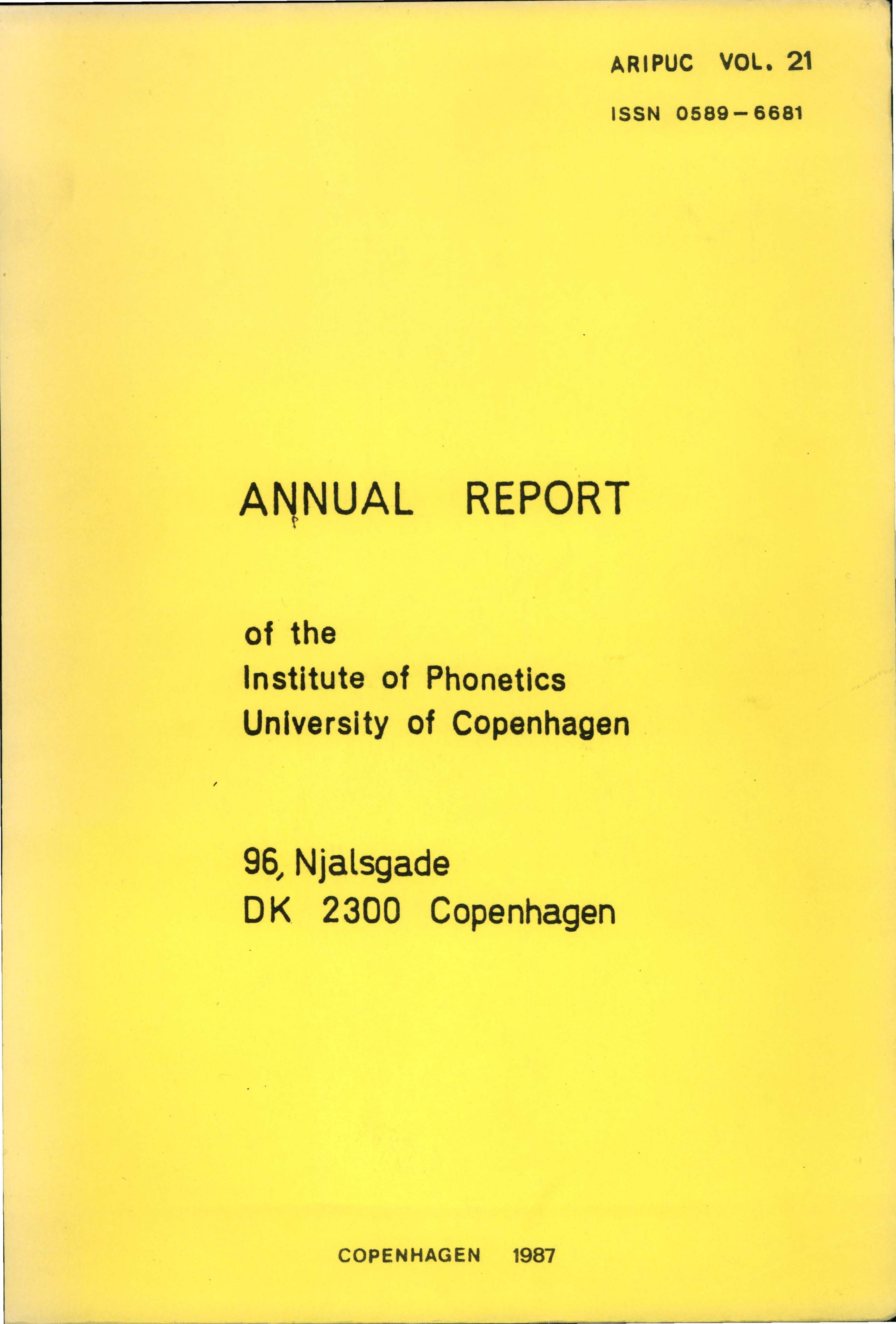Perceptual compensation for segmentally conditioned fundamental frequency perturbation
DOI:
https://doi.org/10.7146/aripuc.v21i.131881Abstract
The paper deals with the role of two types of segmentally conditioned fundamental frequency (Fo) perturbation in speech perception, i.e. the differences in Fo between high and low vowels and the effect of prevocalic obstruent voicing on Fo. The literature relevant to this issue is reviewed, and the results of a supplementary experiment on Fo as a cue to vowel identity are reported. On this basis three major points are made: (1) Although the pitch of vowels is influenced psychoacoustically by their spectral shape, this effect is too small to be of any significant importance in speech perception. (2) The two types of Fo perturbation are not treated differently in the speech perception process, and (3) irrespective of type, the segmentally conditioned Fo variation can function as a cue both to segment identity and to the identity of prosodic categories, depending on the actual demands upon the speech perception system.
Downloads
Published
How to Cite
Issue
Section
License
Copyright holder author

